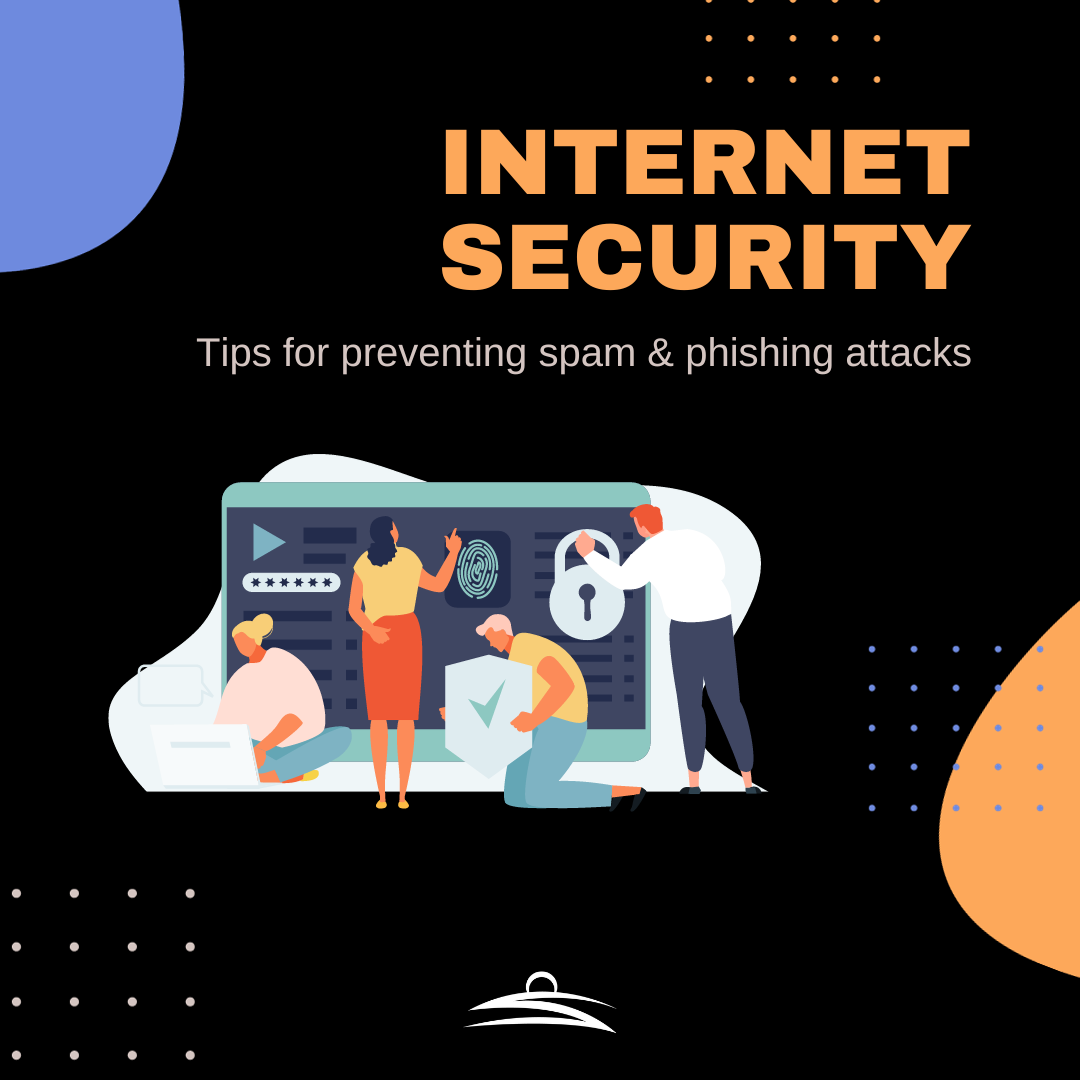
In recent years we have witnessed an onslaught of spam and phishing attempts. It's easy to skim over emails, texts and messages, and not pay attention to who you may be giving information to. It is crucial to be on high-alert and not let yourself become idle.
Tips for Preventing Spam & Phishing Attacks
Besides simply being aware and paying attention, the Federal Trade Commission recommends these tips to avoid spam and phishing attempts:
Be Cautious with your Email & Use an Email Filter
Be cautious about opening any attachments or downloading files from emails you receive, even if it looks like it is from a friend or co-worker–unless you are expecting it or know what it is. If you send an email with an attached file, include a message explaining what it is. Check your email account to see if it provides a tool to filter out potential spam or to channel spam into a bulk email folder. We offer SkyBest Internet Guardian to residential users, which detects and removes viruses, spyware and malicious threats from your computer, email, instant messages and downloads. It also secures your home network with a personal firewall and WiFi patrol, among other protections. Call us to learn more.
Limit Your Exposure
Try not to display your email address in public. That includes on blog posts, in chat rooms, on social networking sites or in online membership directories. Spammers use the web to harvest email addresses. Use good computer security practices and disconnect from the internet when you’re away from your computer. Hackers can’t get to your computer when it’s not connected to the internet.
Choose a Unique Email Address
Your choice of email addresses may affect the amount of spam you receive. Spammers send out millions of messages to probable name combinations at large ISPs and email services, hoping to find a valid address. Thus a common name such as jdoe may get more spam than a more unique name like j26dOe34.
Reduce Spam for Everyone–Don’t Let Spammers Use Your Computer
Hackers and spammers troll the internet looking for computers that aren’t protected by up-to-date security software. Keeping your operating system and security software up to date are among the most important things you can do. When hackers and spammers find unprotected computers, they try to install hidden software–called malware–that allows them to control the computers remotely. Many thousands of these computers linked together make up a ‘botnet,’ a network used by spammers to send millions of emails at once. Millions of home computers are part of botnets. In fact, most spam is sent this way.
If you have further questions, please contact your local SkyLine/SkyBest Customer Center.
If you ever receive an email from SkyLine/SkyBest that you are suspicious about, don't hestitate to give us a call! It is always better to be safe than sorry. The primary purpose of these unsolicited messages from hackers is to extract personal information from unknowing consumers. As your Internet service provider, protection of your information is our top priority. We will never ask you for personal information through email. However, if you are ever in doubt, please reach out at 1-800-759-2226.
